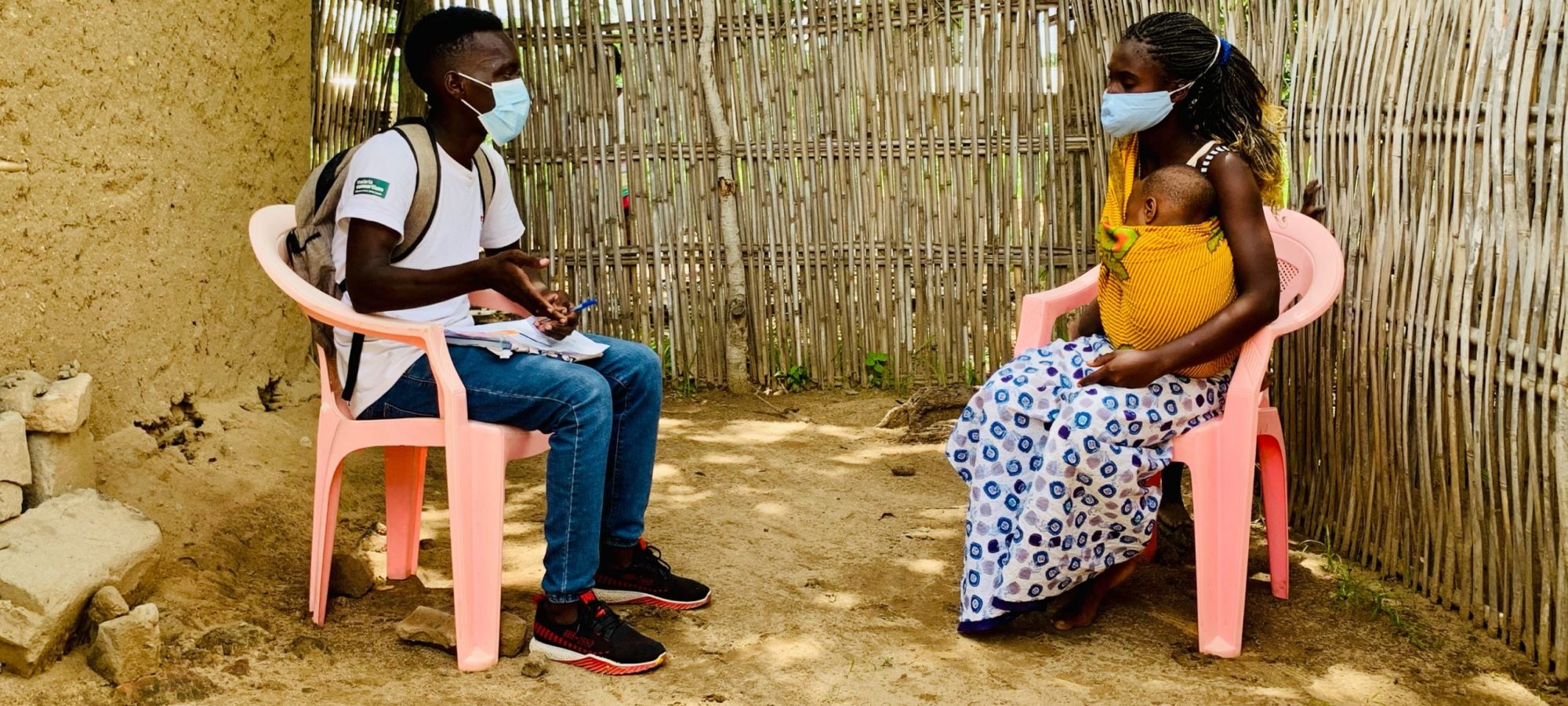2020 was the most difficult year in living memory. Echoing the call of the World Health Organization (WHO), Malaria Consortium supported arguments for malaria programmes to be maintained as essential health services in the context of the COVID-19 pandemic [i]. One such malaria intervention is seasonal malaria chemoprevention (SMC). This is delivered annually during the peak malaria season to protect children under the age of five – one of the groups most vulnerable to the effects of malaria – in areas where malaria transmission is seasonal. As a leading implementer of SMC, Malaria Consortium worked with global and national partners to ensure that the COVID-19 pandemic caused minimal disruption to our 2020 SMC campaign. We led the development of global operational guidance for the safe implementation of SMC, which was published by the RBM Partnership to End Malaria [ii]. We are delighted to say that in an unprecedented and highly complex environment, we reached over 12 million children under the age of five across Burkina Faso, Chad, Nigeria, Togo and Mozambique. This was achieved by acting decisively and by making a series of adaptations to the SMC programme, which taught us valuable lessons that will inform how we proceed with the 2021 campaign.
Adaptations to the SMC programme
The adaptations we made to the SMC campaign were designed to minimise the risk for everyone involved by applying strict infection prevention and control (IPC) standards to how SMC is implemented. For example, many planning meetings and some training sessions were conducted remotely. Where virtual training sessions were not practical, more training events had to be scheduled to limit the number of participants per event. To help community distributors follow the COVID-19 guidelines while distributing SMC in their communities, Malaria Consortium developed a job aid, which was shared with the global SMC community [iii]. We also procured large quantities of COVID-19 related commodities to help SMC implementers stay safe, including face masks and hand sanitiser.
These adaptations, along with many others, were the product of collaborative discussions between Malaria Consortium and our partners; in particular, the national malaria control and elimination programmes in the countries we support. Hard work from all involved facilitated a comprehensive campaign in extremely challenging circumstances.
Lessons learnt in 2020
We have learnt a great deal running the SMC campaign during a pandemic and our understanding of COVID-19 has evolved. A key learning is that sound IPC standards are central to the safe implementation of SMC. These need to be adapted into national guidelines to inform campaign planning early on. Low risk perception can also be a challenge. It is therefore vital to communicate and explain the necessary adaptations to a range of stakeholders, from staff employed on SMC programmes to partners, field implementers and beneficiaries.
The 2021 SMC campaign
Although there are positive signs and the global community is making significant strides in the fight against COVID-19, the pandemic is still a threat to SMC in 2021. We are determined to continue our work with national malaria control and elimination programmes and implementing partners to deliver the campaign safely, drawing on our technical expertise and experience, lessons learnt in 2020 and taking into account emerging evidence. Malaria Consortium is well prepared for this and plans to expand the SMC programme in 2021 to reach 16 million children under the age of five in Burkina Faso, Chad, Nigeria, Togo, Mozambique and Uganda.
We welcome the opportunity to work with our partners to shape the SMC campaign, disseminate learning across the public health community, and ensure that the campaign is implemented safely with the full support of the global SMC community. We believe that it is more important than ever to build on the learnings and successes of 2020 to make the 2021 SMC campaign the most extensive and beneficial to date.
[i] WHO. Tailoring malaria interventions in the COVID-19 response. WHO; 2020 https://www.who.int/publications/m/item/tailoring-malaria-interventions-in-the-covid-19-response
[ii] Roll Back Malaria Partnership to End Malaria. Adapting seasonal malaria chemoprevention in the context of COVID-19: Operational guidance. RBM; 2020. Available from: https:// www.malariaconsortium.org/resources/publica- tions/1336/adapting-seasonal-malaria-chemoprevention-in-the-context-of-covid-19-operational-guidance
[iii] Malaria Consortium. Steps for using infection prevention and control to deliver SMC during COVID-19 pandemic. Malaria Consortium; 2020. https://www.malariaconsortium.org/gallery-file/05220404-48-smc_covid19jobaidv1.2.pdf
